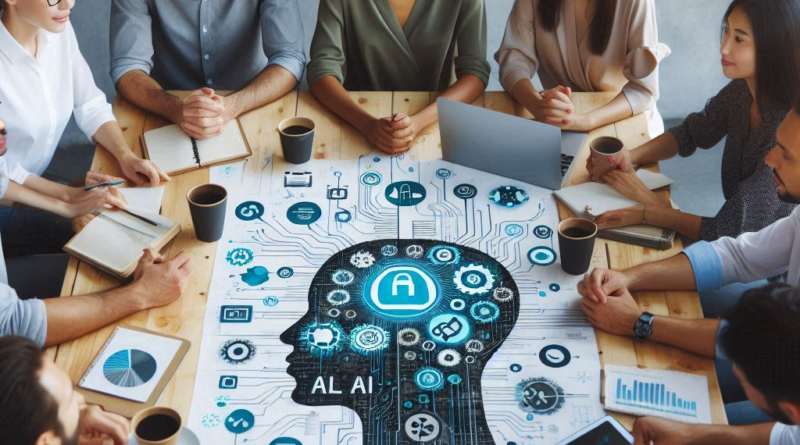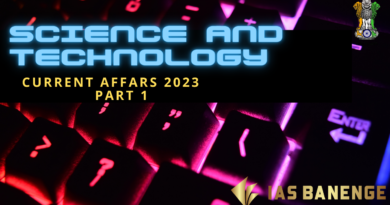Unleashing AI for Social Justice| Ias Banenge
Context:
While AI has significantly impacted areas like medical science, space exploration, financial inclusion, cybersecurity, manufacturing, and transportation, its greatest potential lies in solving complex societal issues and alleviating human hardships at the grassroots level. It shouldn’t be limited to tasks like driving our cars, controlling our air conditioners, writing essays, or improving art. Thus, it’s important to reimagine AI’s role and focus its capabilities on promoting human dignity and social progress.
Relevance:
GS2-
- Issues Relating to Development and Management of Social Sector/Services relating to Health, Education, Human Resources.
- E-governance- applications, models, successes, limitations, and potential.
GS3- Indigenization of Technology and Developing New Technology.
Mains Question:
By prioritising ethical deployment, AI stands poised to become a powerful tool for driving meaningful social change. Discuss. (10 Marks, 150 Words).
READ MORE- The Impact of Electromagnets in Modern Life
Role of AI in Societal Change:
Upliftment of Marginalized Communities:
- AI should be used to uplift marginalized communities, enhance social equity, and drive meaningful societal change.
- In primary education, AI can be instrumental in addressing the fundamental challenges faced by children of migrant laborers and displaced civilians, thereby helping to break the cycle of disadvantage.
- AI can tackle barriers such as lack of access, resources, language, quality instruction, and personalized support.
- Adaptive learning platforms and customized educational content can meet individual needs, allowing children to integrate into the mainstream education system seamlessly.
- This ensures equitable access to educational opportunities for all, regardless of background or circumstances, and helps prevent anyone from falling behind.
Eradication of Manual Scavenging:
- Another urgent issue requiring AI intervention is the eradication of manual scavenging in countries like India.
- Despite legal prohibitions, manual scavenging continues, exposing individuals to hazardous conditions and stripping them of their basic dignity.
- AI-powered sanitation systems and robotics, deployed swiftly, can provide a viable solution by automating waste management processes and eliminating the need for manual labor.
Access to Justice:
- Access to justice is another domain where AI can have a substantial impact, leading to quicker resolutions and better outcomes.
- AI can manage databases, provide legal assistance, and offer support services and information resources to underserved communities.
- This can help individuals navigate the legal system, understand their rights, and access legal representation, especially in cases involving war crimes, civil rights violations, discrimination, or social injustice.
- Using AI for social justice initiatives can help combat systemic biases and promote inclusivity by analyzing large datasets to identify patterns of discrimination in various fields, from education to criminal justice.
- AI-driven decision-making can reduce biases in hiring and law enforcement, ensuring fair and equitable treatment for everyone.
Way Forward:
- The examples above highlight the transformative potential of AI intervention. It is essential to adopt a ground-up approach rather than a top-down one.
- Safeguards must be in place to prevent algorithmic biases and mitigate risks of misuse or manipulation, making interdisciplinary collaboration between technologists and policymakers crucial to navigate the ethical complexities of AI development and implementation.
- It’s important to remember that AI is a tool, not a solution. AI can only be considered transformational if it is used to eliminate dehumanizing practices, build social equity, and improve the lives of grassroots communities.
Conclusion:
Therefore, AI should be harnessed as a force for positive change, ensuring it remains a tool for empowerment and progress. We should focus its capabilities on endeavors that uplift humanity and promote social progress, setting other applications aside for now.




